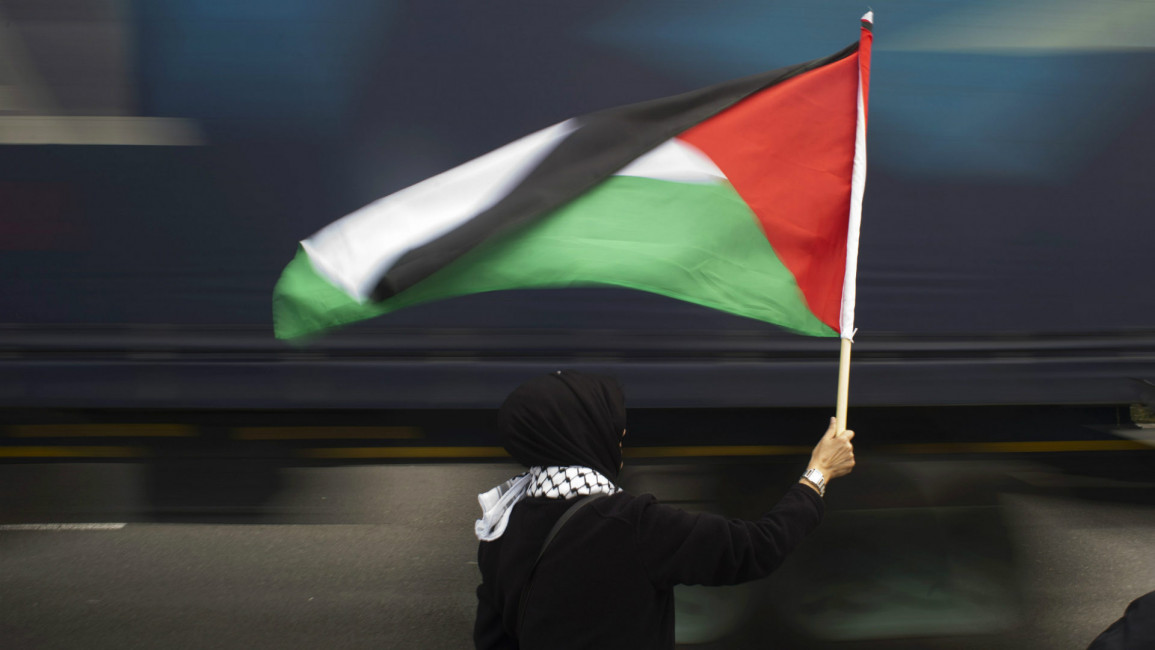Palestinian left-wing factions rejoin PLO meetings after brief boycott
Two left-wing Palestinian factions will end a boycott of Palestine Liberation Organisation (PLO) meetings, a party leader has announced.
The secretary-general of the Palestinian People’s Party (PPP) - the former Palestinian Communist Party - said in a statement to media late on Monday that his party and the Democratic Front for the Liberation of Palestine (DFLP) had revoked their previous decision to boycott the PLO's Executive Committee meetings.
Bassam Salhi affirmed that the two factions had met with representatives of Fatah - Palestinian President Mahmoud Abbas' Party - and agreed to attend Monday night's meeting on the condition that the Executive Committee begins talks to reform the PLO.
It comes after differences within the PLO resurfaced following a joint statement on Saturday released by the two leftist parties together with the Popular Front for the Liberation of Palestine (PFLP), about funding issues.
The PPP, DFLP, and PFLP have protested the cutting of their shares in the Palestinian National Fund, the PLO's financial body.
The parties said they have not been receiving their due shares from the fund for several months.
They attributed this to political reasons, saying that the delay was "a means of pressure that will not succeed in deterring the three political forces from defending democratic rights and liberties, in the face of repressive authoritarian policies".
The three political parties announced on Sunday their boycott of the PLO's executive committee, before the DFLP and the PPP declared that they would step back from this action.
PLO leftist factions (DFLP & People's party) decided to boycott the PLO executive committee meeting in a show of protest to the way national issues are being dealt (clearly aimed at Abbas) https://t.co/eCrvGuqugM
— Daoud Kuttab داود كُتّاب (@daoudkuttab) October 17, 2021
Fatah officials have responded differently to the boycott. Fatah’s spokesperson, Munir Al-Jaghoub, told local media that his movement "is open to dialogue with all Palestinian factions, especially those represented in the PLO, whose remarks have to be taken into consideration".
Abdullah Kmeil, a member of Fatah's Revolutionary Council, however accused the left-wing parties of receiving money from Iran.
"No party has the right to get funding from the PLO while at the same time getting funding from Iran," he told Palestinian Alam Radio.
"They can not be part of the PLO while attacking its president," he added, referring to the left-wing parties' criticism of Palestinian Authority President Mahmoud Abbas.
Kmeil also accused the PFLP of "allowing Hamas to train 5,000 of its own militants", saying that they could not be part of the PLO while doing this but added that the current issues "need to be solved through dialogue".
Opposition to the PLO leadership, headed by Palestinian Authority President Mahmoud Abbas, has intensified in the past months after the suspension of presidential and legislative elections, scheduled for last May.
Tensions heightened following the death of Palestinian political critic Nizar Banat in Palestinian security forces' custody in late June.
Palestinian leftist factions have traditionally opposed the PLO's leadership, saying that it was undemocratic and too prepared to compromise with Israel.
The PLO was formed in 1964 and was originally an umbrella body representing all Palestinian factions. A wide range of political parties, trade unions, and civil organisations are represented but it does not include Hamas or the Palestinian Islamic Jihad (PIJ), which were founded in the 1980s.
The reforming of PLO bodies is at the centre of intra-Palestinian talks, which seek to end internal political divisions that have dominated Palestinian politics since 2007.
Among the reforms demanded include general elections for the PLO’s Palestinian National Council, to ensure wider political representation.



